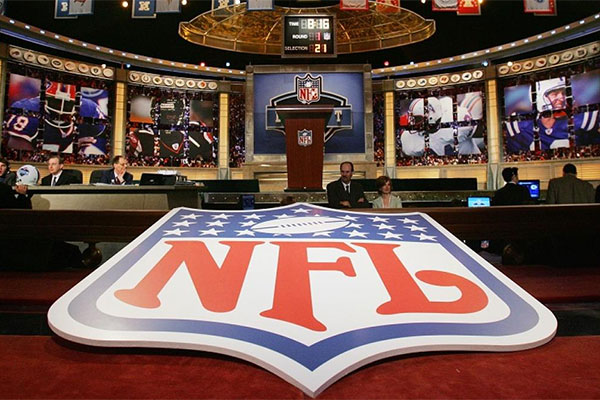 If you watched the NFL Draft last week, you may have noticed an interesting statistic. Of the 32 players selected in the first round, 29 of them were multi-sport athletes. In fact, eight of the top 10 selections played more than 1 sport. The statistic alone is attention-grabbing. But what does it mean and can we find any talent management lessons from this phenomenon?
If you watched the NFL Draft last week, you may have noticed an interesting statistic. Of the 32 players selected in the first round, 29 of them were multi-sport athletes. In fact, eight of the top 10 selections played more than 1 sport. The statistic alone is attention-grabbing. But what does it mean and can we find any talent management lessons from this phenomenon?
Certainly it’s possible these individuals are so athletic and internally driven by competition that they would be elite whether they were handed a football, golf club or curling stone. Much like High Potentials in the workplace, these are individuals who rise to the challenge of new experiences. But, it’s also possible that these men became better football players as a result of the conditioning, diverse experiences, and lower burnout rates from the multi-sport approach and that’s something every leader should remember. Leaders should seek out diverse operational experiences to make them more well-rounded—just like engaging in multiple sports makes an athlete more versatile.
But in leadership, there’s no off-season.
Outside of a job rotation or career change, it may be difficult to identify the same kind of novel experience athletes are exposed to by alternating sports. But leadership experience isn’t limited to 8am-5pm. There are plenty of ways to flex a leadership “multi-sport” muscle without changing jobs.
Volunteer. Charities are a gold-mine of self-development opportunities. While dedicating time and energy to a charitable mission, leaders will experience the passion that a group of individuals feel when they are laser-focused on pursuing a vision together. Charities are also a great training ground for being resourceful. With small budgets and lofty goals, it often takes creativity to accomplish tasks. While volunteering, you can experience everything from brainstorming to marketing/communications and fundraising. Each of those experiences can broaden your outlook and help you apply new solutions to daily challenges.
Leverage Training. In most professional development training workshops, the trainer will ask everyone to split up and sit with people they don’t know. Aside from the opportunity to network, meeting new individuals and working through their real-life work problems together during action learning activities can expose all leaders to new challenges and solutions that they can apply to their own jobs. Maintain the professional friendships made during training/coaching workshops and continue bouncing ideas off of leaders from different industries.
Coach a sport. Few experiences test the ability to communicate effectively and engage a team like coaching a sport. Whether it’s co-ed adult softball or youth soccer, coaching a sport helps leaders refine how they support, motivate, and develop others while driving team performance. Sports coaches inspire the team to come together. They provide consistent feedback to improve performance and skill development. Perhaps most importantly, great sports coaches identify leaders on the field. Coaching and developing the leadership skills of others is a hallmark of great leadership.
Challenging yourself outside of your job can improve your flexibility, creativity, communication skills, decision-making, and ability to develop others. The lessons learned outside of work can make you a more well-rounded leader and reduce burnout. They may not make you a first round draft pick, but they could turn you into your team’s MVP!

